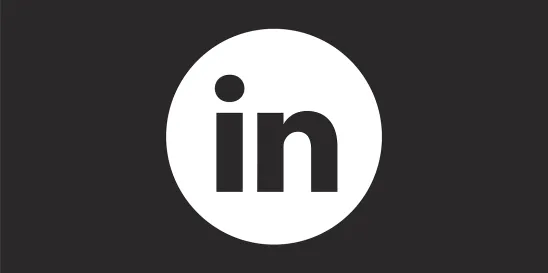Don’t Be “Out of Sight, Out of Mind” in the Remote Work Era
Remote work has become much more the norm today, and for those employees who are not going into the office regularly – or at all, it’s crucial not to fall into the “out of sight, out of mind” category.
Falling into the “out of sight, out of mind” category as a remote worker can be detrimental to your career progression. This is because visibility in the workplace often correlates with opportunities for mentorship, recognition and advancement. Being physically absent from the office may inadvertently lead to being overlooked for promotions, challenging projects or professional development opportunities.
Studies have shown that remote workers can be at a disadvantage when it comes to promotions compared to their in-office counterparts. This could be due to a variety of factors, including reduced face-to-face interaction with managers, less participation in impromptu meetings or discussions and the perception of being less engaged.
Whether you’re a junior employee, at a mid-level or in a senior position, creating visibility for yourself is essential for career progression and opportunities.
In this article, learn about strategies for building your brand both within your company and in the wider professional world, with a special emphasis on the power of LinkedIn.
For Junior Employees: Establishing Your Foundation
- Be Proactive in Communication: Regularly update your team and manager about your progress on projects. Use emails, messaging apps and project management tools to keep everyone in the loop. Beyond basic updates, consider sharing insights or learning experiences from your tasks. This could include challenges you overcame or innovative approaches you employed.
- Engage in Virtual Networking: Participate in virtual team meetings, webinars and online training sessions. These sessions are not only educational but also offer networking opportunities. Don’t hesitate to share your ideas and insights.
- Create a Strong LinkedIn Profile: As a starting point, ensure your LinkedIn profile is complete and reflects your skills and career aspirations. Engage with content in your field and start building connections.
- Use Tech Tools: Familiarize yourself with different communication tools. For example, use email for formal updates, instant messaging for quick queries and project management tools for tracking progress.
- Feedback and Queries: Encourage two-way communication by asking for feedback on your work and being open to questions from your team.
- Visibility in Meetings: During virtual meetings, make your presence known by actively participating in a meaningful way. Ask questions, provide updates, offer solutions to problems and offer to take on new tasks.
- Join Online Professional Groups: Engage with professional groups on platforms like LinkedIn or Slack. This can be a gateway to discussions, networking opportunities and industry insights.
For Mid-Level Professionals: Expanding Your Influence
- Lead Online Initiatives: Volunteer for new projects, especially those that require cross-departmental collaboration. This showcases your initiative and exposes you to a broader audience within your company.
- Develop Thought Leadership: Start a blog, record podcasts and create content related to your expertise. Share these on LinkedIn and other professional platforms to establish your voice in the industry.
- Mentor Others: Offer to mentor junior colleagues or interns. This not only helps others but also demonstrates your leadership and commitment to your company’s growth.
For Senior Professionals: Solidifying Your Authority
- Drive Strategic Projects: Take the lead in strategic initiatives, especially those that align with organization’s goals. Your leadership in these areas will be visible to top management and stakeholders.
- Expand Your Professional Network: Utilize LinkedIn to connect with industry leaders and influencers. Engage in meaningful discussions and share insights from your experiences.
- Publish Articles: If you’re comfortable with writing, consider publishing articles on LinkedIn or in industry publications to showcase your expertise and opinions on industry-related topics.
- Speak at Industry Events: Seek opportunities to speak at webinars, conferences or panels. These activities will help to elevate your profile and position you as an authority in your field.
Why It’s Important For Remote Workers to Cultivate a Strong LinkedIn Presence
Remote workers at every level of their careers should spend the time to create and cultivate a strong LinkedIn presence. Here are a few reasons why LinkedIn should be at the top of your professional development priority list:
- Professional Visibility: In a remote work environment, opportunities for in-person networking and visibility are limited. A robust LinkedIn profile acts as your digital presence in the professional world, making you more visible to colleagues, industry peers, recruiters and potential employers.
- Networking Opportunities: LinkedIn provides a platform to connect with professionals from your industry and beyond. This is crucial for remote workers, as it can help compensate for the lack of face-to-face networking opportunities. Through LinkedIn, you can join groups, participate in discussions and connect with new people, expanding your professional network.
- Showcasing Skills and Accomplishments: Your LinkedIn profile is a place to highlight your skills, experiences and professional accomplishments. For remote workers, this is key to demonstrating your value and capabilities to current and potential employers, especially when you can’t do so in person.
- Staying Informed and Up-to-Date: LinkedIn is a valuable resource for staying informed about industry trends, news and insights. This is especially beneficial for remote workers who might not have the same level of access to informal information sharing that occurs in physical office spaces.
- Career Development and Opportunities: LinkedIn is often used by recruiters and companies to find candidates for job openings. A strong presence on the platform increases your chances of being discovered for new career opportunities, freelance gigs or collaborative projects.
- Personal Branding: LinkedIn enables you to build and control your personal brand. How you present yourself, your skills and your experiences on LinkedIn contributes to how you are perceived professionally. This is particularly important for remote workers, as your online persona often serves as the first (and sometimes only) impression for potential employers or collaborators.
- Learning and Development: LinkedIn offers a variety of learning resources, courses and insights that can aid in your professional development. As a remote worker, continuous learning and upskilling are key to staying competitive, and LinkedIn can be a valuable resource for this.
A strong LinkedIn presence will help to bridge the gap created by the physical distance in remote work, ensuring you remain connected, relevant and visible in your industry.
How Remote Workers Can Create a Strong LinkedIn Presence
- Comprehensive Profile Details: Ensure that your profile includes a professional photo, a compelling summary, a stellar cover image with your contact information on it, detailed work experience, skills and education. Recommendations from colleagues or clients add credibility.
- Content Engagement: Regularly post or share relevant articles, insights and updates about your field. Engaging with others’ content through comments or shares can also increase your visibility.
- Networking: Connect with colleagues, industry peers and thought leaders. Personalize your connection requests with a brief note about why you’re interested in connecting.
- Join and Contribute to Groups: Participate in LinkedIn groups related to your profession. Engage in discussions, share your insights and connect with group members.
Tips for Remote Workers to Build Strong Relationships With Colleagues
Building relationships as a remote worker requires a proactive approach and creative use of technology to foster connections that might naturally occur in a physical office setting. Here are some tips for remote workers to build and maintain strong relationships with their colleagues:
- Regular Communication: Make it a habit to regularly check in with your colleagues through emails, instant messaging and video calls. This helps in staying informed and connected with the team’s activities.
- Participate Actively in Virtual Meetings: Engage actively in virtual meetings by sharing ideas, asking questions and providing feedback. This shows your involvement and interest in the team’s work.
- Schedule One-on-One Meetings: Set up periodic one-on-one virtual meetings with colleagues and superiors. These meetings can be more informal and allow for personal conversation, which helps in building deeper connections.
- Join or Create Online Social Groups: Participate in or create online social groups or channels for your team where everyone can share non-work-related content. This could be a space for hobbies, book clubs or general discussions, which can help in building camaraderie.
- Celebrate Achievements and Milestones: Acknowledge and celebrate the achievements and milestones of your colleagues, such as work anniversaries, project completions or personal accomplishments. This can be done through virtual team gatherings or sending congratulatory messages.
- Share Personal Updates (Appropriately): Share appropriate personal updates or stories in team meetings or chats. This helps colleagues see you more holistically, beyond just your work role.
- Offer Help and Support: Be proactive in offering help or support to your colleagues. This could be work-related or even offering a listening ear. It shows that you are a team player and care about your colleagues.
- Attend Virtual Team-Building Activities: Participate in virtual team-building activities organized by your company. If none are available, you can even suggest or organize such events.
- Set Up In-Person Meetings When Possible: If feasible, arrange for occasional in-person meetings or social gatherings. Face-to-face interaction can strengthen relationships built online.
Building relationships remotely takes time and effort, and it’s about the quality of interactions rather than the quantity. Being genuine, consistent and approachable in your interactions can go a long way in establishing strong, lasting relationships with your colleagues.
Key Takeaways for Remote Workers to Stay Visible
- Consistent Communication: Regular updates and active participation in company communications are vital.
- Visibility Through Value: Whether it’s through leading projects, creating content or mentoring, provide value to others to gain visibility for yourself.
- LinkedIn as a Tool: Having a strong presence on LinkedIn is non-negotiable. It’s a platform where you can showcase your skills, share your achievements and engage with the broader professional community.
Building your brand and maintaining visibility as a remote employee is essential, regardless of your career stage. By proactively managing your presence both internally and externally, you can ensure that you’re not just “out of sight,” but a memorable and influential part of your professional community. Remember, in the digital age, your next big opportunity might just be a click away.




 />i
/>i
